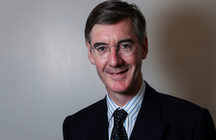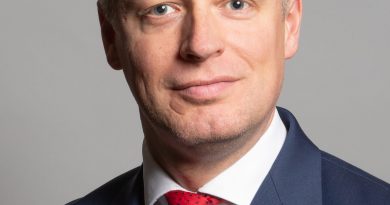Alan Milburn – 2002 Speech to Emergency Care Lead’s National Conference
Below is the text of the speech made by Alan Milburn, the then Secretary of State for Health, on 27 November 2002.
I wanted to come along for a couple of reasons. First, there are many of you here from a variety of backgrounds and I want to thank you for what you are doing. I want you to thank the people who are working in emergency care when you return to your various hospitals, community centres and so on. Much of the discussion today inevitably centres on the problems that we have in the emergency care system. But I think it is quite important that we also recognise that most people get very high quality care most of the time. That is down to you, and the people that work with you and for you in the community.
I was recently travelling back from a conference with a television news presenter, who had recently taken his elderly relative to an A&E department in London. He compared it to his last visit two years before, and he was struck by how quickly his relative was seen and how there was very clear communication from the outset through each stage of the patient’s journey. He knew what was going to happen next and that was important for him. This was in marked contrast from his previous experience.
He did not know anything about Emergency Care Collaboratives or streaming, but he did feel their consequences. What he extrapolated from the experience was the state of the NHS. And this is why emergency care is so critical. Obviously, it is important in itself. But it is also an important barometer for the public for the whole of the NHS. The quality of the A&E experience has an impact on what people think of the whole healthcare system.
There are huge problems, and we all know that. But I think we have a real opportunity to change things for the better. There is more money going into the NHS. We are going to get five years of real-term increases in funding, worth around 7.5%. We have a unique opportunity to use that money to provide the quality of care that patients want to see. We need to get the money into the right places – into A&E – but that is not just hospitals. Primary care, community services and social services must work too.
If you are putting taxes up, which we are, people will want to see a return for the extra they are paying. The Emergency Care Strategy has set out a national framework for the way these improvements can happen. We have strong leadership in David Lammy and Sir George Alberti. There is a huge amount of change happening even though people are not always comfortable in managing and experiencing change.
When I see the fact that 20% of our A&E departments are now providing 90% of our patients with care within four hours that fills me with optimism. In the end, even though we can have as many national standards and targets as we like, there is a big difference between “us” on the platform and “you” out there. I do not treat anybody – you do. Nothing will happen without your involvement and your support. The real reason to be hopeful is that when you visit an A&E department, NHS Direct or anywhere, you are filled with a sense of amazement and privilege about what people are doing.
I have always believed in one simple thing: if you can put together the right level of investment, the right programme of change and reform, and you can harness the expertise, commitment and know-how of staff out there, then you can change things for the better.
There are a lot of problems in the NHS. But I believe one fundamental thing about it: we live in a world where healthcare can do more than it has ever done before, but it costs more than it has ever done before. In that world, I think NHS values and principles – care being free and based on a person’s need and not their wealth – is not a weakness for Britain, but an enormous source of strength for Britain.
So, I think we have a unique opportunity. We look to work with you, and to learn from you, to make these changes happen. I believe we have every reason indeed to be very optimistic about what the future holds for emergency care and our health system overall. Thank you very much for coming.

